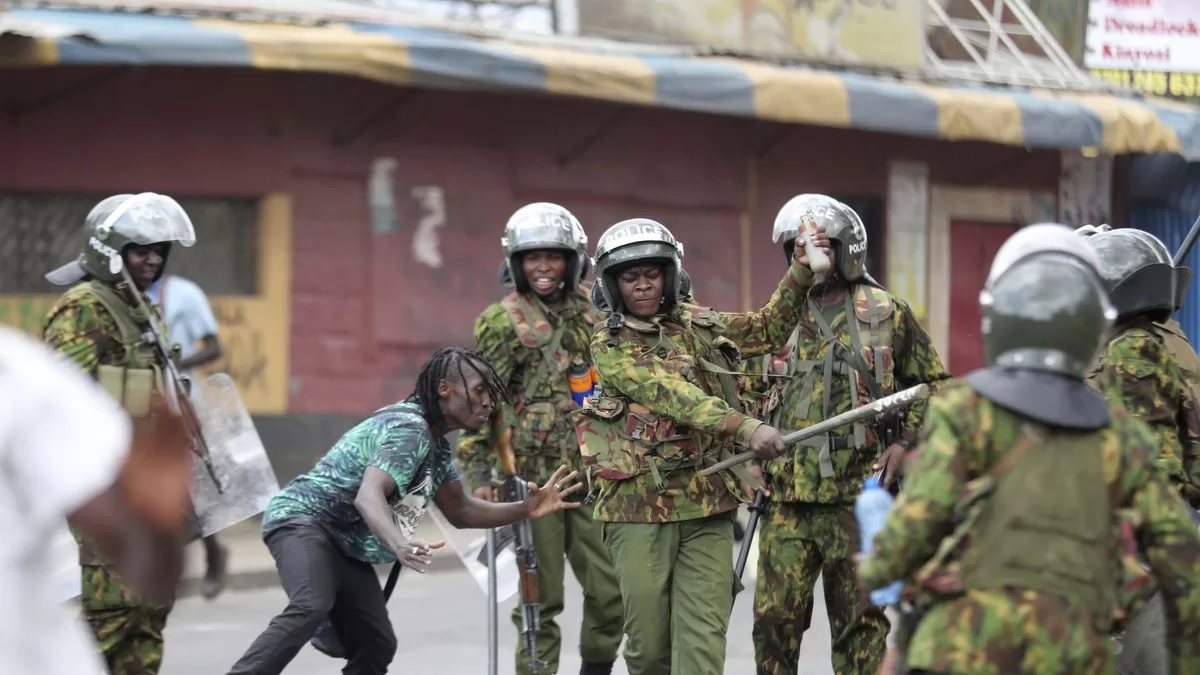The sexual abuse and devastating outbreak of cholera that have accompanied foreign forces in recent decades do not inspire much confidence. But Haitians maintain that the uncontrolled bloodshed leaves few other options.
Florence Casimir, a primary school teacher, said that while past international interventions have hurt Haiti, their abuses are no match for the brutality of gangs, who kidnap their students and force their parents to pay huge ransoms.
“It will never be better (than past interventions), but right now the Haitian people have no choice,” Casimir said. “The Haitian people cannot fight alone.”
Since Prime Minister Ariel Henry urged the world to deploy an armed force to fight gangs in October, the United Nations has had a hard time convincing a country to lead efforts to restore order to the Caribbean nation, due to in part to controversy over previous peacekeeping missions. A possible initiative led by the United States or the UN has not aroused much interest and Washington has been unsuccessful in convincing Canada to lead the operation.
While that search continued, the war between the gangs continued to worsen, leading to a wave of hundreds of kidnappings and the emergence of vigilante forces that take the law into their own hands. Today, it is estimated that armed groups control 80% of the capital, Port-au-Prince.
Kenya has offered to send 1,000 officers to help train and assist Haiti’s overstretched police, saying their goal is to “restore normalcy to the country.” This week, the United States said it would submit a resolution to the UN Security Council to authorize the force.
“This is not a traditional peacekeeping force,” said the US ambassador to the UN, Linda Thomas-Greenfield, at a press conference.
Kenya’s proposal has sparked debate among Haitians as many are wary of international intervention after decades of failures and abuses by members of these forces.
Haitians witnessed several rounds of foreign interventions during the 20th century that were often the response of countries like the United States to political instability in the Caribbean nation. Some of these missions helped ease the chaos and, in the 1990s, led to the creation of the Haitian National Police.
But the successes are often marred by the scars of the abuses perpetrated by those same operatives that drag the population.
A UN peacekeeping mission deployed between 2004 and 2017 was plagued by allegations of mass sexual abuse, including allegations that mission members raped and impregnated girls as young as 11. Investigations by The Associated Press found evidence of high levels of impunity.
In 2010, a discharge of fecal water from a camp of the blue helmets reached the main river of the country and caused a cholera epidemic that killed about 10,000 people.
“This left a bitter taste in the mouths of the Haitian population,” said Valdo Cenè, who sells cooking gas. “Bringing in international forces could mean repeating our history.”
This international police force might not be a UN force. If deployed, Kenyan police would be in charge rather than answering to a UN force commander, as is the case in traditional missions.
The Haitian prime minister said on Tuesday that he spoke with Kenyan President William Ruto to thank the country for the “demonstration of brotherly solidarity.” According to Henry, Kenya plans to send a task force in the coming weeks to assess the operational requirements of the mission.
But Haitians aren’t the only ones questioning the plan. Monitoring groups are drawing attention to the Kenyan police’s record of human rights abuses and suggesting that they could export such behaviour.
Police in the East African nation have long been accused of murder and torture, including shooting civilians during the COVID-19 lockdown. A local group said officers shot dead more than 30 people during protests in July, all of them in the country’s poorest neighborhoods.
Louis-Henri Mars, director of Lakou Lapè, a popular Haitian peacekeeping organization, echoed those concerns.
“People are baffled,” Mars said. “This could turn into another big disaster.”
Although Mars is among many who say the deployment of the Kenyan force would be an important step toward stabilizing the country, he expressed hope that the deployment would be a temporary measure that paves the way for a longer process against rampant violence in Haiti, such as the kidnapping of an American nurse and her daughter.
Haiti needs to build a stable and trustworthy police force, as well as provide a path to justice for victims and former gang members, who are often young men caught up in the violence that surrounds them, Mars said. .
Others, like Jerthro Antoine, say the Kenyan police are not arriving soon enough.
This cell phone repairman said he dreams of stepping on a beach again, but the violence has gotten so bad that even walking down the street is risky.
“I feel trapped in my house. Any foreign force that supports the Haitian police is more than welcome,” Antoine said. “The Haitian people need it, we need a breather and to have a life again.”
___
Janetsky reported from Mexico City. AP Writer Edith M. Lederer at the United Nations contributed to this report.
FOUNTAIN: Associated Press


